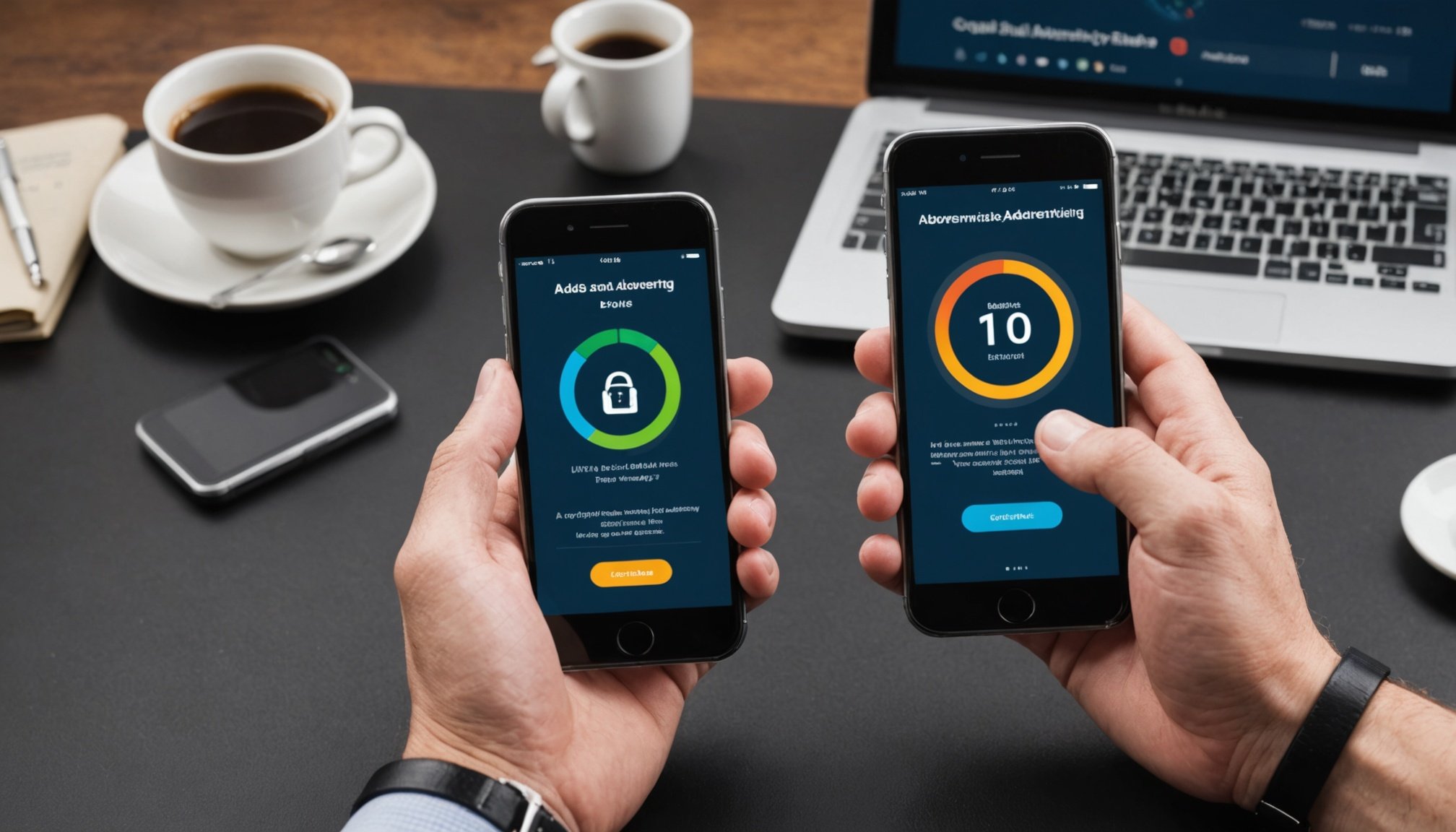Unlocking the Full Potential of Your Digital Advertising Budget: A Comprehensive Guide for UK Small Businesses
In the digital age, small businesses in the UK face a myriad of challenges when it comes to managing their marketing budgets effectively. With the ever-evolving landscape of online advertising, it can be daunting to navigate the various options and strategies available. However, with the right approach, your digital advertising budget can become a powerful tool to drive growth, increase brand visibility, and attract new customers. Here’s a comprehensive guide to help you unlock the full potential of your digital advertising budget.
Understanding Your Marketing Budget
Before diving into the specifics of digital advertising, it’s crucial to understand the importance of allocating a well-thought-out marketing budget. Your marketing budget is the foundation upon which all your advertising efforts are built.
Also to discover : Streamlining legal processes: innovative approaches to blockchain integration in uk documentation
Why a Marketing Budget is Essential
A marketing budget helps you prioritize your spending, ensure consistency in your marketing efforts, and measure the effectiveness of your campaigns. Here are a few reasons why having a clear marketing budget is vital:
- Financial Control: It helps you manage your finances better and avoid overspending.
- Goal Setting: A budget allows you to set clear marketing goals and objectives.
- Performance Measurement: You can track the ROI (Return on Investment) of your marketing campaigns more effectively.
Allocating Your Budget
When allocating your marketing budget, consider the following:
This might interest you : The ultimate a/b testing guide for better conversions
- Digital Advertising: This includes Google Ads, Facebook Ads, and other online advertising platforms.
- Content Marketing: Investing in quality content such as blog posts, videos, and social media posts.
- Email Marketing: Building and engaging with your email list.
- Social Media Management: Managing and optimizing your social media presence.
Choosing the Right Digital Advertising Platforms
With numerous digital advertising platforms available, selecting the right ones for your business can be overwhelming. Here’s a breakdown of some of the most popular platforms and how they can benefit your business.
Google Ads
Google Ads is one of the most powerful tools for online advertising. Here’s why you should consider it:
- Targeted Reach: Google Ads allows you to target specific keywords and demographics, ensuring your ads reach the right audience.
- Measurable Results: You can track the performance of your ads in real-time, making it easier to optimize your campaigns.
- Flexibility: Google Ads offers various ad formats, including search ads, display ads, and video ads.
"Google Ads is a game-changer for small businesses. It allows us to reach our target audience with precision and measure the impact of our campaigns effectively." - Sarah Johnson, Marketing Manager at XYZ Ltd.
Facebook Ads
Facebook Ads is another robust platform that can help you reach a wide audience.
- Advanced Targeting: Facebook offers advanced targeting options, including interests, behaviors, and custom audiences.
- Visual Content: Facebook is ideal for visual content, making it perfect for businesses with compelling images or videos.
- Budget-Friendly: Facebook Ads can be highly cost-effective, especially for small businesses with limited budgets.
"Facebook Ads has been instrumental in helping us increase our brand visibility and drive traffic to our website. The targeting options are incredibly detailed." - Mark Davis, Owner of ABC Shop.
Crafting an Effective Marketing Strategy
An effective marketing strategy is the backbone of any successful digital advertising campaign. Here are some key elements to consider:
Understanding Your Target Audience
Knowing your target audience is crucial for creating ads that resonate with them.
- Demographics: Age, gender, location, and other demographic factors.
- Interests: What your audience is interested in and how it relates to your business.
- Behavior: Their online behavior and purchasing habits.
Creating Compelling Content
Your content is what sets your brand apart and engages your audience.
- Quality Over Quantity: Focus on creating high-quality, relevant content rather than churning out low-quality posts.
- Consistency: Maintain a consistent tone and style across all your content.
- Engagement: Encourage engagement by asking questions, hosting giveaways, or running contests.
Optimizing Your Campaigns
Optimizing your campaigns is an ongoing process that ensures you get the most out of your digital advertising budget.
Monitoring Performance
Regularly monitor the performance of your campaigns to identify what works and what doesn’t.
- Key Metrics: Track metrics such as click-through rates (CTR), conversion rates, and return on ad spend (ROAS).
- A/B Testing: Test different ad creatives, headlines, and targeting options to see which perform better.
Adjusting Your Strategy
Be prepared to adjust your strategy based on the data you collect.
- Budget Reallocation: If one campaign is performing better than another, consider reallocating your budget accordingly.
- Ad Creative Updates: Update your ad creatives regularly to keep your messaging fresh and engaging.
Leveraging Social Media for Your Business
Social media is a powerful tool for small businesses, offering a range of benefits beyond just advertising.
Building Your Brand
Social media helps you build and maintain your brand identity.
- Consistent Branding: Ensure your branding is consistent across all social media platforms.
- Engagement: Engage with your audience by responding to comments and messages promptly.
Driving Traffic
Social media can drive significant traffic to your website.
- Content Sharing: Share your content regularly to drive traffic to your website.
- Paid Promotions: Use paid promotions to reach a wider audience and drive more traffic.
Managing PPC Campaigns Effectively
Pay-Per-Click (PPC) campaigns can be highly effective if managed correctly.
Setting Up PPC Campaigns
Here are some steps to set up a PPC campaign:
- Keyword Research: Conduct thorough keyword research to identify relevant keywords.
- Ad Copywriting: Write compelling ad copy that includes your target keywords.
- Bidding Strategy: Choose a bidding strategy that aligns with your goals, such as cost-per-click (CPC) or cost-per-thousand impressions (CPM).
Optimizing PPC Campaigns
Optimizing your PPC campaigns is crucial for maximizing your ROI.
- Ad Group Structure: Organize your ads into relevant ad groups to improve performance.
- Negative Keywords: Use negative keywords to avoid irrelevant traffic.
- Landing Page Optimization: Ensure your landing pages are optimized for conversions.
Table: Comparing Popular Digital Advertising Platforms
Here’s a comparative table of some popular digital advertising platforms:
| Platform | Targeting Options | Ad Formats | Minimum Budget | Payment Terms |
|---|---|---|---|---|
| Google Ads | Keyword, demographic | Search, display, video | No minimum | Pay-per-click |
| Facebook Ads | Demographic, interest, behavior | Image, video, carousel | No minimum | Pay-per-click |
| LinkedIn Ads | Professional demographics | Sponsored content, sponsored ads | $10/day | Pay-per-click |
| Amazon Services | Demographic, interest, behavior | Sponsored products, display ads | $50 threshold | CPM |
| Infolinks | Contextual | In-text, in-frame, in-tag | $50 threshold | Revenue share |
Practical Insights and Actionable Advice
Here are some practical insights and actionable advice to help you maximize your digital advertising budget:
Start Small and Scale
- Begin with a small budget and scale up as you gather data and see positive results.
- Test different platforms and ad formats to find what works best for your business.
Use Data to Your Advantage
- Leverage data analytics to understand your audience better and optimize your campaigns.
- Use tools like Google Analytics to track the performance of your campaigns.
Diversify Your Channels
- Don’t put all your eggs in one basket; diversify your advertising channels to reach a broader audience.
- Use a mix of search engine marketing, social media advertising, and content marketing.
Focus on Content Marketing
- Invest in quality content that resonates with your target audience.
- Use content marketing to build trust and establish your brand as an authority in your industry.
Unlocking the full potential of your digital advertising budget requires a combination of the right strategy, the right platforms, and continuous optimization. By understanding your target audience, creating compelling content, and leveraging the power of social media and PPC campaigns, you can drive significant growth for your business.
Remember, digital advertising is an ongoing process that requires constant monitoring and adjustment. Stay flexible, be willing to learn from your data, and always keep your target audience in mind. With these tips and insights, you’re well on your way to maximizing your digital advertising budget and achieving your marketing goals.
"The key to successful digital advertising is understanding your audience and being willing to adapt. By focusing on the right platforms and continuously optimizing our campaigns, we’ve seen a significant increase in our brand visibility and customer engagement." - Emily Brown, Marketing Director at DEF Ltd.











